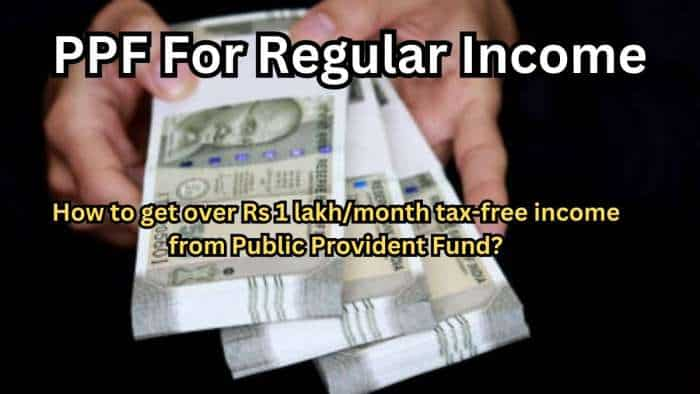Investment Planning: Are there some drawbacks of purchasing a guaranteed income plan?
Recently, there has been a surge in the guaranteed income plans provided by leading life insurance companies in the country. In 2023, companies like HDFC Life, TATA AIA, ICICI Pru Life, and Aditya Birla Sun Life, among others, have introduced new guaranteed income plans that offer guaranteed payouts at predefined periodical intervals.
)
Investors often prefer investment instruments that offer secure or guaranteed return. Many insurance companies have recently introduced guaranteed income plans. The guaranteed return plans belong to the category of insurance policies which offer a guaranteed return on investments for a specified period. Under such plans, the investors pay a fixed premium and after the predetermined period they receive payouts.
The payout mode and amount may differ based on terms and conditions of the policy as well as several other factors.
The guaranteed income plans are gaining popularity as they provide a sense of security to the investors compared to other instruments.
While a guaranteed income plan has several advantages, there are some drawbacks. However, many investors may not know about these risks and invest in a guaranteed income plan due to the secured return.
It’s important to do a careful analysis of its pros and cons of a guaranteed income plan before investing in a policy.
Disadvantages of a guaranteed income plan
The various risks that come with purchasing a guaranteed income plan are:
• High premium: A guaranteed income plan comes with a higher premium compared to other insurance policies. However, there are a host of other investment options that offer similar facilities.
• Lower returns: Though these plans need high premiums, the returns generated are lower compared to other investment options. According to insurance experts, the average yield generated is 4 per cent to 7 per cent per annum and this won't prove to be helpful in the future due to inflationary pressures.
• Returns not based on invested funds: While these plans promise a 10 per cent return, it's actually misleading as they offer 10 per cent returns of the sum assured and not the actual money invested. Therefore, it's not profitable as the actual money invested could be much higher than the sum assured.
• Payouts depend on survival: The payouts under a guaranteed income plan are assured. However, it comes with a predetermined condition of the survival of the beneficiary during the policy tenure and that all the premiums are paid. So, in case of the policyholder's death during the term, no payout is received by their family members.
Advantages of guaranteed income plan
Though guaranteed income plans have several disadvantages associated with them, there are some advantages that should be considered too before decision-making. These advantages include:
• These plans serve as a stable source of income after retirement.
• They provide a solution to your financial targets if you buy it for achieving a pre-defined goal.
• There is utmost safety of funds paid as premiums as even if the insurance company is in a crisis or goes through mergers or acquisitions even then the policyholder's funds would be protected.
Get Latest Business News, Stock Market Updates and Videos; Check your tax outgo through Income Tax Calculator and save money through our Personal Finance coverage. Check Business Breaking News Live on Zee Business Twitter and Facebook. Subscribe on YouTube.
RECOMMENDED STORIES

SIP Calculation at 12% Annualised Return: Rs 10,000 monthly SIP for 20 years, Rs 15,000 for 15 or Rs 20,000 for 10, which do you think works best?

FD Rates for Rs 10 lakh investment: Compare SBI, PNB, HDFC, ICICI, and Post Office 5-year fixed deposit returns

LIC Saral Pension Plan: How much should you invest one time to get Rs 64,000 annual pension for life?

SIP Calculation at 12% Annualised Return: Rs 1,000 monthly SIP for 20 years, Rs 4,000 for 5 years or Rs 10,000 for 2 years, which do you think works best?

UPS vs NPS vs OPS: Last-drawn basic salary Rs 90,000 and pensionable service 27 years? What can be your monthly pension in each scheme?

Monthly Pension Calculations: Is your basic pension Rs 26,000, Rs 38,000, or Rs 47,000? Know what can be your total pension as per latest DR rates
02:49 PM IST











 Hidden charges on SBI ATM cards: Is your money disappearing quietly?
Hidden charges on SBI ATM cards: Is your money disappearing quietly? Latest personal loan interest rates for SBI, PNB, Bank of Baroda, HDFC bank and ICICI bank
Latest personal loan interest rates for SBI, PNB, Bank of Baroda, HDFC bank and ICICI bank 8 post office investment schemes that offer over 7% guaranteed return
8 post office investment schemes that offer over 7% guaranteed return Millennials turning towards new-age investment instrument fractional investing: Report
Millennials turning towards new-age investment instrument fractional investing: Report  Income Tax: How are e-filing and e-payment of taxes different? Know details here
Income Tax: How are e-filing and e-payment of taxes different? Know details here